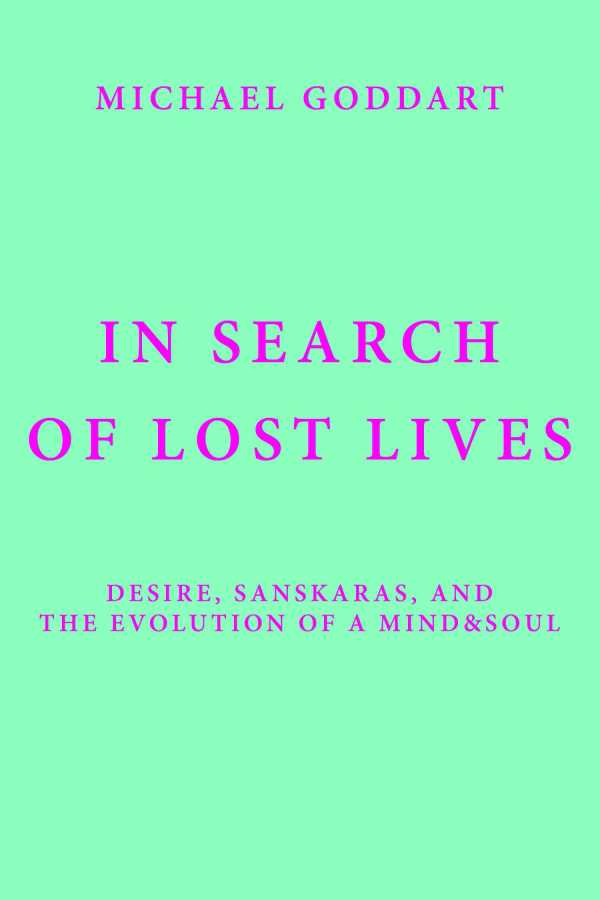In Search of Lost Lives
Desire, Sanskaras, and the Evolution of a Mind & Soul
In Search of Lost Lives catalogs the author’s past lives, mining them for insights and producing exciting ideas.
Michael Goddart’s memoir In Search of Lost Lives reads like a spiritual diary, following the memories, or sanskaras, of his many past lives.
The book claims that, with the help of spiritual practices and meditation, Goddart learned to recollect memories from his previous lives, including as other species and on other planets. Intriguing and surprising, the book oscillates between dreamlike spirituality and simple, fact-based life details, covering a span of thousands of years and making for an often dizzying read.
The book details recovering memories through automatic writing, meditation, and other spiritual connections, gathering details ranging from occupations and locations to exact dates in history. Diary entries collect the memories as they are recovered. While it claims a connection to a total of 4,137 human lives, the text focuses on fifty-two earthly lives, including in the lost city of Atlantis, as well as lives on various other planets.
Each life is described in terms of the person’s height, attractiveness, intelligence, family life, and manner of death. Some lives achieve spiritual insight, while others simply express the longing for it, without any specific insight actually being recovered.
The book works backward from the present day; this arrangement is frequently confusing, with internal references to other past lives that haven’t been described yet. Word choices around spiritual connections are imprecise—sometimes to allow for interpretations. While various components of mystical religious traditions are mentioned, they are scattered throughout the book, and it is unclear where some sections fit in terms of a faith landscape.
Some of the most interesting sections are those from the “Atlantian and Lemurian” era, as well as from the planets Vazin and Jorlu. They somewhat, but not thoroughly, describe settings without well-established frames of reference, and there is some lingering desire for more. Transitions between paragraphs and life chapters are abrupt and difficult to follow.
Many provided details don’t build toward specific insights or complete stories. The loose prose trends toward long-winded sentences. A final section concisely summarizes many of the text’s details and is invaluable for drawing larger connections. The book’s conclusion conveys themes of increasing wonder, empathy, and kindness garnered from the author’s various lives; these notions are more diffuse in the text itself.
This is an atypical spiritual memoir. In Search of Lost Lives catalogs the author’s past lives, mining them for insights and producing exciting ideas among an overabundance of unusual details.
Reviewed by
Laura Leavitt
Disclosure: This article is not an endorsement, but a review. The publisher of this book provided free copies of the book and paid a small fee to have their book reviewed by a professional reviewer. Foreword Reviews and Clarion Reviews make no guarantee that the publisher will receive a positive review. Foreword Magazine, Inc. is disclosing this in accordance with the Federal Trade Commission’s 16 CFR, Part 255.

